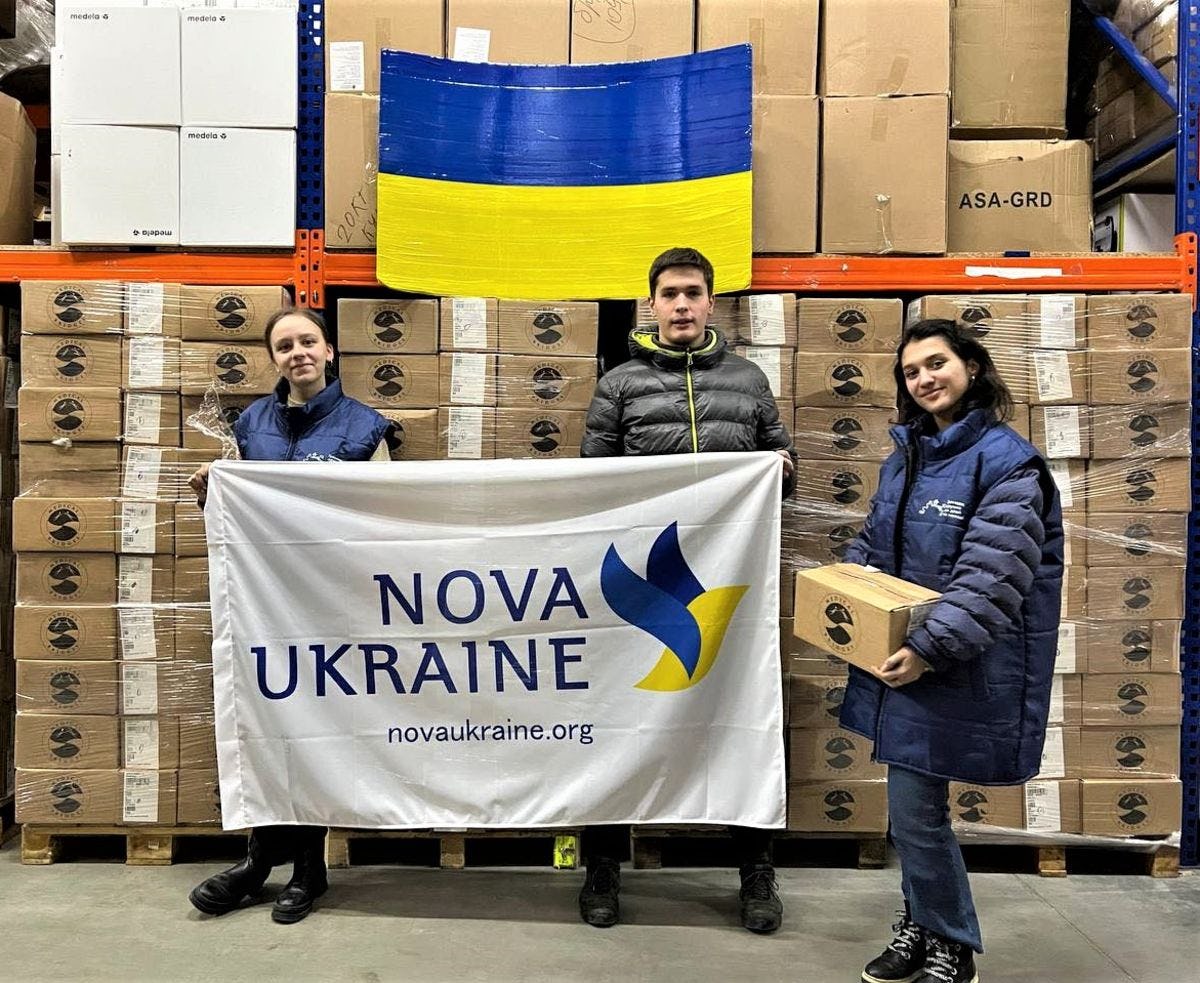
Walter Ulrich ’68 is on a mission to provide medical resources where they are needed most – including war-torn Ukraine, earning Ulrich special recognition from President Volodymyr Zelensky. For Ulrich, however, the real reward is improved healthcare throughout the world’s communities most in need.
When we last spoke with Walter Ulrich ’68, he was sending personal protective equipment and other medical supplies around the globe in the battle against COVID-19. While pandemic conditions have improved since then, the global need for adequate healthcare continues – as does Ulrich’s passion for ensuring access to healthcare in every corner of the world.
In 2019, Ulrich came out of retirement to take the helm of Medical Bridges, Inc., a nonprofit that directs surplus medical resources to developing countries internationally and to more than 85 charitable clinics throughout the organization’s home state of Texas. Since its founding in 1997, Medical Bridges has helped hospitals and healthcare centers in 105 countries on five continents, impacting more than 20 million lives.
Some might be daunted by the overwhelming health inequities that Ulrich and his colleagues work so hard to alleviate and the challenges of getting supplies and equipment to poor and war-torn countries, including Ukraine. Ulrich, however, would beg to differ.
“This is the most joyful work I have ever done,” he says. “We have a staff of 21 ranging in age from 25 to 65. They inspire me every day. We work closely with non-governmental organizations that are on the ground in the places we serve. We fill a crucial niche that helps them preserve funding for other important programs and services.”
“We also have innovative collaborations with U.S. organizations,” Ulrich continues. “For example, Texas A&M University students raise funds to buy 40-foot shipping containers and then use their skills to convert them into medical offices. We fill them with medical and dental supplies before sending them to places where there are no buildings to house health services.”
Two shipping-container clinics are currently on the ground in South Sudan, where the infant mortality rate is alarmingly high. Four clinics are in Ukraine, including one on the site of a bombed hospital 30 miles from the Russian border. “Over 1,200 hospital facilities and healthcare centers have been attacked in Ukraine since the outbreak of the war, including maternity hospitals,” Ulrich explains. “In addition to the clinics, Medical Bridges has provided Ukraine with 265 tons of medical equipment and supplies valued at more than $12 million.”
Recently, Ulrich hosted a Stevens alumni Day of Service at Medical Bridges, ensuring that his alma mater also had a chance to connect with and support the organization’s mission.
Taking up the cause of worldwide health inequality might seem an unusual career capstone for someone who studied computer science in the earliest days of information technology.
“I came to Stevens thinking I would study physics,” Ulrich recalls. “At that time, every incoming freshman had to take a one-credit computing course. I loved it so much that I changed my major before the semester ended. Stevens didn’t offer a computer science degree yet, so I chose the math major to be able to focus on computer technology.”
Ulrich expected computer engineering to define his career. Instead, after serving in the U.S. Marine Corps, he formed his own management and technology consulting practice and returned to Stevens to earn a master’s degree in management.
“Computing was not being used to its full advantage,” he says, noting that in the 1970s, he helped develop one of the first commercially successful email services. “Businesses were missing an opportunity to be more productive and effective, but the issues were more related to management than technology.”
Executive roles followed, including a partnership at Coopers & Lybrand Consulting, managing directorships at Arthur D. Little and Viant Technology, and the chief executive’s office at Procurenet, Inc. and later Mincron Software Systems. In 2006, he helped found the Texas Emerging Technology Fund Committee. Over the years, his clients ranged from financial services companies to healthcare organizations. “I was grateful to have such a well-rounded education,” he says.
In 2007, Ulrich joined the Houston Technology Center as president and CEO. During his ten years there, the life sciences business accelerator was named among Forbes’ “Ten Technology Incubators Changing the World.”
Ulrich was two years into retirement when Medical Bridges reached out to him out of the blue. “I didn’t know of anyone in Houston who knew of the organization, yet it had a very high rating from Charity Navigator, a nonprofit evaluator.”
As he researched the organization, he was taken with its mission, but could see that it needed improvements. “I had a lot of experience fixing broken companies,” he says. “Medical Bridges wasn’t what I would call broken, but I knew it could be strengthened.”
In September, Ukraine’s President Volodymyr Zelensky thanked Ulrich personally for supporting access to healthcare in his country, during a speech at the National Archives. For Ulrich it was both an honor and a full-circle moment.
“My father was a World War II Army captain who served as executive officer of the 106th Evacuation Hospital, the same hospital where my mother, a decorated World War II surgical nurse served,” he points out, adding that his wife is a highly esteemed nurse as well. “It is enormously rewarding to be able to use my Stevens education to continue a legacy of providing healthcare to those in need.”

